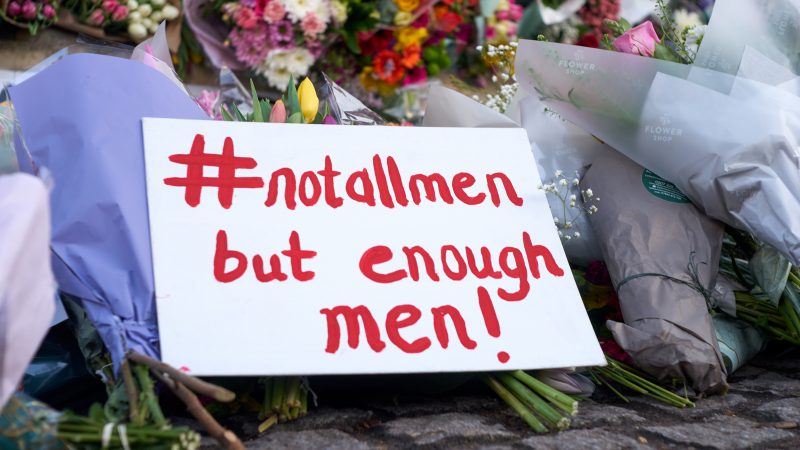
SPONSORED
We have launched a groundbreaking comparative study into high-status/high-public-trust UK professionals who perpetrate sexual harm across work, home and public spaces – and how professional regulators and membership bodies can best identify and respond.
We have become familiar with media stories about high profile cases of sexual misconduct, often among celebrities or in the business world. However, an under-recognised group are what could be termed ‘high status/high trust’ professionals – in particular where they offend against adults, rather than children. These professionals may hold a confidante role (such as doctors, psychiatrists or religious leaders) or they may act as physical protectors or guardians of our rights (consider police, military, barristers, judges or politicians). The professional role can give them social licence to move freely through both public and intimate spaces, and it affords them authority as experts. Given their public-facing and important work, they may derive moral standing and a default presumption of noble intentions. For this reason, such professionals can be ‘powerful perpetrators’.
Following an award by the European Research Council, and funded by UKRI, this 5-year study looks, first, at the nature and prevalence of such perpetrators within and across those professions. The aim is to build a robust body of evidence on individual, organisational and wider cultural factors which may facilitate, conceal or fail to challenge their behaviour. Second, it looks at the internal disciplinary and professional regulatory responses to these individuals, once identified. These ‘administrative justice’ spaces may be particularly important where criminal justice routes are not available, not desired or not successful.
The term ‘sexual misconduct’ does not always convey the gravity and impact of this behaviour. Indeed, this form of attenuating language is common in describing professional offending. Doctors ‘conduct unnecessary intimate examinations’; police ‘have inappropriate sexual relationships with victims of crime’; judges ‘behave dishonourably’.
But it is serious. It harms individuals physically, sexually and psychologically, including long-term. It impacts colleagues, bystanders, families and other service-users; it compromises the delivery of work though stress, absence and avoidance; it affects recruitment and retention; it creates legal and reputational costs for employers; and it adds to demand on health and support services. Fundamentally, it can corrode public trust in key social institutions.
We are approaching national regulators for the professions of interest to request anonymised case numbers and examples of anonymised case files. We are interviewing individuals involved in any aspect of disciplinary and regulatory processes in relation to sexual misconduct, to learn from their experience and insight; and we are interviewing journalists who have investigated this area. We are anonymously surveying individuals who have experienced or witnessed abuse by professionals. And we are methodically searching and cataloguing case data already in the public domain – either published by organisations, in the media, or through Freedom of Information requests.
The multiple initiatives and reports within different sectors may suggest that sexual misconduct is a problem that has been addressed. But we believe effective intervention requires understanding practice both within and across professional groups. That way, we can see the connections (and differences) in how powerful perpetrators operate. We think more effective practice will emerge from combining collective knowledge and insight. That is what this study aims to achieve.
Get in touch
We would welcome your help. If you wish to talk in interview or off-the-record, or complete our survey, or make suggestions about the project, then please visit our website.
As our findings emerge, we would really value your expertise in translating them into practical and meaningful change. Do get in touch: thank you.
For more information, email the project lead Dr Natasha Mulvihill at [email protected]
- SHARE: If you have anything to share that we should be looking into or publishing about this story – or any other topic involving Labour– contact us (strictly anonymously if you wish) at [email protected].
- SUBSCRIBE: Sign up to LabourList’s morning email here for the best briefing on everything Labour, every weekday morning.
- DONATE: If you value our work, please chip in a few pounds a week and become one of our supporters, helping sustain and expand our coverage.
- PARTNER: If you or your organisation might be interested in partnering with us on sponsored events or projects, email [email protected].
- ADVERTISE: If your organisation would like to advertise or run sponsored pieces on LabourList‘s daily newsletter or website, contact our exclusive ad partners Total Politics at [email protected].




More from LabourList
‘Factionalism at the top is weakening Labour – and handing a gift to Reform’
‘Europe must stand strong on its own as US security guarantees grow conditional’
‘Tackling poverty should be the legacy of Keir Starmer’s government’